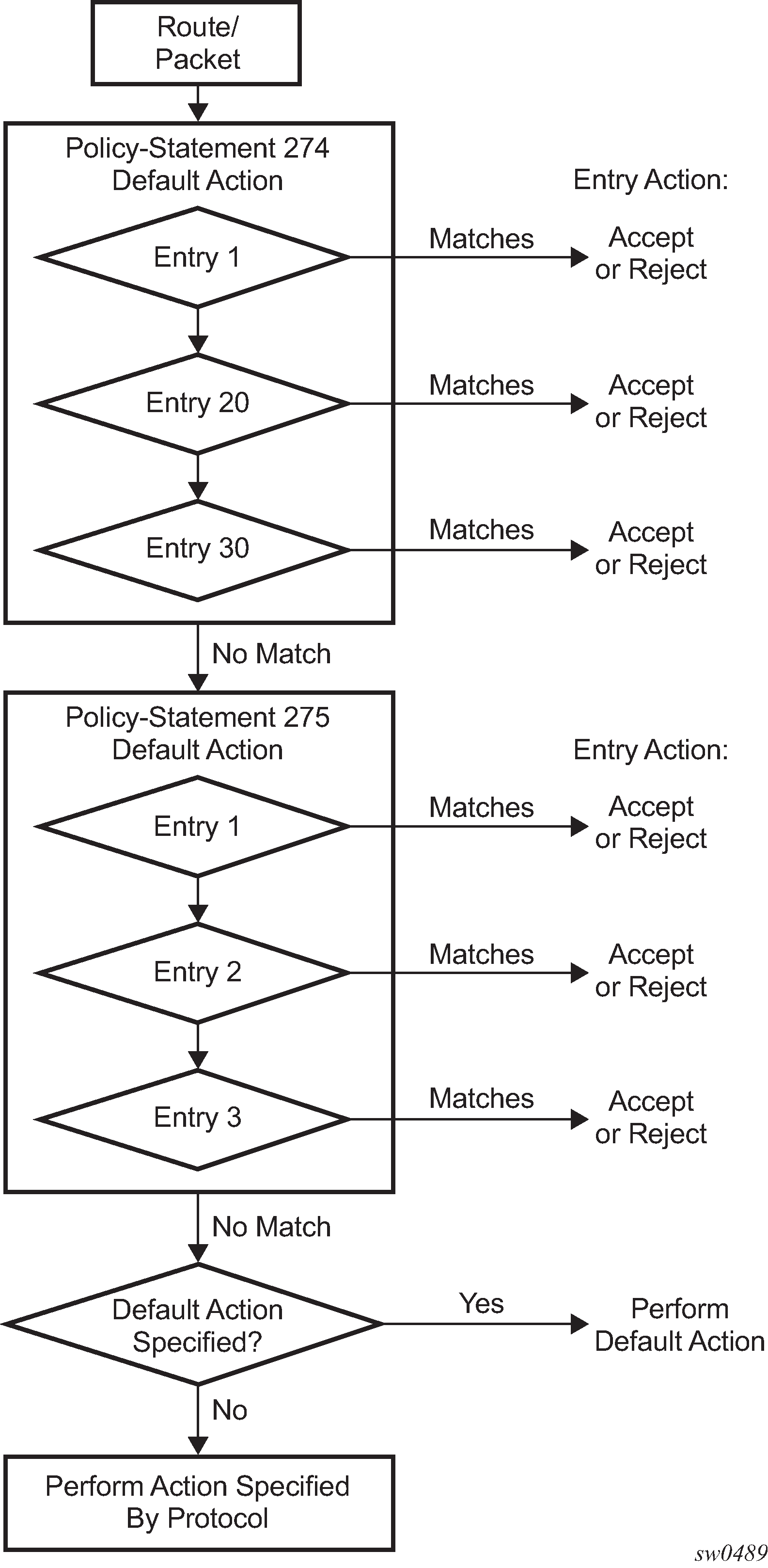Route policy configuration overview
Route policies allow the configuration of IGMP group membership reports filtering rules.
When to create routing policies
Route policies are created in the config>router context. There are no default route policies. Each route policy must be explicitly created and applied.
A route policy impacts the flow of packets within and through the router.
Route policies can be created to control filter IGMP membership reports from specific hosts or specific multicast groups.
Before a route policy is applied, analyze the policy purpose and be aware of the results (and consequences) when packets match the specified criteria and the associated actions and default actions, if specified, are executed. Membership reports can be filtered based on a specific source address.
Default route policy actions
Each routing protocol has default behaviors for the import and export of routing information. The following table describes the default behavior for each routing protocol.
Protocol |
Import |
Export |
|---|---|---|
OSPF |
Not applicable. All OSPF routes are accepted from OSPF neighbors and cannot be controlled via route policies. |
|
Policy evaluation
Routing policy statements can consist of as few as one or several entries. The entries specify the matching criteria. The packet fields are compared to the first entry in the policy statement. If it matches, the specified entry action is taken, either accepted or rejected. If the action is to accept or reject the route, that action is taken and the evaluation of the route ends.
If the route does not match the first entry, the route is compared to the next entry (if more than one is configured) in the policy statement. If there is a match with the second entry, the specified action is taken. If the action is to accept or reject the route, that action is taken and the evaluation of the route ends, and so on.
Each route policy statement can have a default-action clause defined. If a default-action is defined for one or more of the configured route policies, the default actions should be handled in the following ways:
The process stops when the first complete match is found and executes the action defined in the entry.
If the packet does not match any of the entries, the system executes the default action specified in the policy statement.
The following figure shows an example of the route policy process.
Route policies can also match a specific route policy entry and continue to search for other entries within either the same route policy or the next route policy by specifying the next-entry option in the entry action command.
